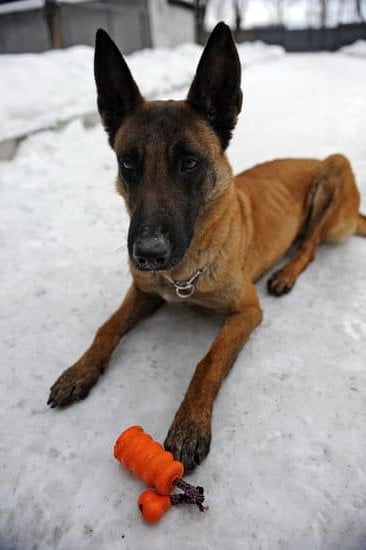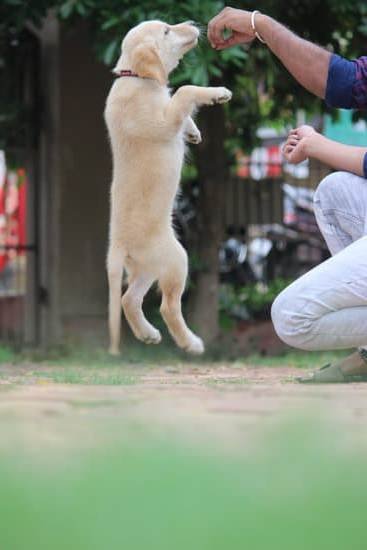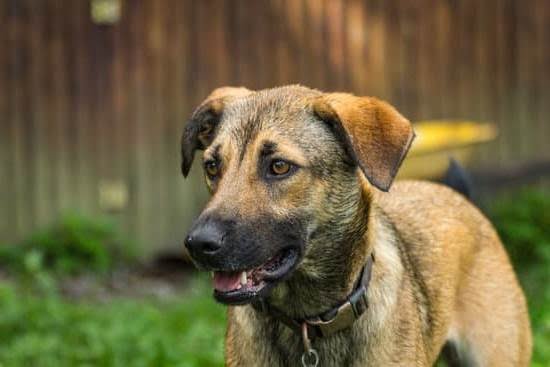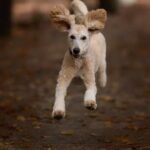House training a dog can be a challenging task, especially when it comes to older dogs. In this article, we will explore how to house train your older dog and provide tips and strategies to make the process as smooth as possible.
Assessing the situation and understanding your dog’s behavior and habits is crucial, as well as establishing a routine for feeding, potty breaks, and exercise. Positive reinforcement, patience, consistency, supervision, cleaning up accidents, and seeking professional help when necessary are all important aspects of successfully house training an older dog.
When it comes to house training an older dog, it’s important to approach the process with patience and understanding. Older dogs may have established habits that need to be addressed carefully in order to successfully train them. By evaluating your dog’s behavior and habits, you can better understand the challenges you may face and tailor your training methods accordingly.
Establishing a consistent routine is key when house training an older dog. This includes setting specific times for feeding, potty breaks, and exercise to help regulate their schedule. Using positive reinforcement techniques such as treats, praise, and rewards can also encourage good behavior and make the training process more effective. Additionally, understanding that house training an older dog takes time and effort is important – perseverance is key in achieving success.
Assessing the Situation
Observe Your Dog’s Behavior
One of the first steps in house training an older dog is to closely observe their behavior and habits. Take note of when and where your dog tends to have accidents in the house. Look for any patterns or signs that may indicate when they need to go potty. Understanding your dog’s behavior will help you create a plan that works specifically for them.
Evaluate Health Concerns
In some cases, accidents in the house may be due to health issues such as urinary tract infections, diabetes, or other medical conditions. It’s important to rule out any potential health concerns by taking your older dog to the vet for a check-up. Once any health issues are addressed or ruled out, you can proceed with focused training methods.
Consider Their Previous Training
If your older dog was previously house trained and has recently started having accidents, it’s essential to consider what may have triggered this change in behavior. Changes in the household, routine disruptions, or stress can all contribute to a lapse in good potty habits. By evaluating their previous training and identifying any changes in their environment, you can better understand why they may be having accidents and address those specific issues during their re-training process.
By carefully assessing your older dog’s behavior and habits, you will be better equipped to create a customized approach to house training that addresses their specific needs and challenges. This evaluation phase sets the foundation for establishing a successful routine and using effective positive reinforcement techniques as outlined in the following sections.
Establishing a Routine
When house training an older dog, one of the key elements to success is establishing a consistent routine. This includes setting regular times for feeding, potty breaks, and exercise. By creating a predictable schedule, you can help your older dog understand when and where they should go to relieve themselves, making it easier for them to learn new habits.
Feeding Schedule
Start by establishing set mealtimes for your older dog. Feeding them at the same times each day can help regulate their digestive system and make it easier for you to anticipate when they will need to go outside. Additionally, feeding your dog at specific times can also prevent accidents caused by irregular feeding schedules.
Potty Breaks
In addition to regular feeding times, it’s crucial to set a consistent schedule for potty breaks. Take your older dog outside first thing in the morning, after meals, before bedtime, and several other times throughout the day. Keep in mind that older dogs may need more frequent bathroom breaks compared to younger dogs due to potential bladder control issues.
Exercise Routine
Regular exercise not only benefits your older dog’s physical health but can also contribute to their overall well-being and house training success. Establishing a daily exercise routine helps keep their energy levels in check and can lead to more predictable bathroom habits. Taking your older dog for walks or engaging in playtime can also reduce anxiety and stress, which are common triggers for accidents indoors.
By creating a structured routine for feeding, potty breaks, and exercise, you can provide your older dog with the stability and predictability they need to succeed in their house training efforts. Just remember that patience and consistency are crucial as you work towards establishing new habits with your furry friend.
Positive Reinforcement
As part of the process of house training your older dog, positive reinforcement is a crucial tool to encourage good behavior. Older dogs may take longer to adapt to new routines, so using treats, praise, and rewards can be especially effective in helping them understand what behavior is desired. When using positive reinforcement, it’s important to be consistent in your approach and patient with your dog as they learn.
Treats can be a powerful motivator for dogs, especially when introducing new behaviors or commands. Choose small, soft treats that are easy for your older dog to chew and digest. It’s also important to use treats in moderation to avoid overfeeding. Additionally, offering verbal praise along with the treat can reinforce the connection between the action and the reward.
In addition to treats and praise, finding out what non-food rewards motivate your older dog can also be useful in encouraging good behavior. Some dogs respond positively to playtime or getting their favorite toy as a reward. Understanding what motivates your specific dog will help make the positive reinforcement process more effective.
| Positive Reinforcement Method | Description |
|---|---|
| Treats | Use small, soft treats along with verbal praise when rewarding good behavior. |
| Non-food Rewards | Discover what non-food rewards motivate your dog (e.g. playtime or their favorite toy) as an alternative form of positive reinforcement. |
Patience and Consistency
House training an older dog can be a challenging task that requires patience and consistency. Unlike puppies, older dogs may have already established habits and behaviors that need to be modified. It’s important for pet owners to understand that this process takes time and effort, but with the right approach, it can be successful.
One of the key aspects of house training an older dog is consistency. This means sticking to a regular schedule for feeding, potty breaks, and exercise. By creating a routine and sticking to it, you will help your dog understand what is expected of them. Consistency also applies to the use of commands and signals for potty breaks, as well as the enforcement of rules within the house.
In addition to consistency, patience is essential when house training an older dog. Understand that accidents will happen, especially in the beginning stages of training. It’s important not to get frustrated or lose your temper if your dog has an accident indoors.
Instead, remain calm and continue with the training process, using positive reinforcement to encourage good behavior. Patience is key in helping your older dog adjust to new routines and habits as they learn where they should go potty.
Supervision and Confinement
House training an older dog requires close supervision and sometimes the use of crates or playpens. Here are some tips for effectively managing this aspect of the process:
- Keep your dog within eyesight at all times, especially during the initial stages of house training. This will allow you to quickly intervene if they show signs of needing to go potty.
- Utilize crates or playpens when you cannot directly supervise your dog, such as when you are away from home or unable to keep a close eye on them. Make sure that the crate or playpen is large enough for your dog to stand up, turn around, and lie down comfortably.
- Avoid using the crate or playpen as a form of punishment. Instead, make it a positive space for your dog by including their favorite toys, blankets, and treats.
Proper supervision and confinement can help prevent accidents in the house while also keeping your older dog safe and secure. Remember to be patient with your dog as they adjust to this new routine.
Cleaning and Managing Accidents
Accidents are an inevitable part of the house training process, especially when it comes to older dogs. It’s important to be prepared for these instances and know how to effectively manage them. When accidents occur, it’s crucial to clean up thoroughly in order to prevent your dog from repeating the behavior in the same spot.
One of the most important aspects of cleaning up after an accident is to use an enzymatic cleaner specifically designed for pet messes. These types of cleaners are specifically formulated to break down the odor-causing molecules in urine and feces, thus eliminating the scent that may attract your dog back to the same spot. Additionally, avoid using any ammonia-based cleaners as they can actually amplify the smell and encourage your dog to continue soiling in that area.
In addition to cleaning up after accidents, it’s essential to take proactive measures in preventing future incidents. Keeping a close eye on your older dog, especially during the initial stages of house training, can help catch any signs that they may need to go outside.
Utilizing positive reinforcement when they do their business outdoors is also crucial in reinforcing good habits. By consistently following these tips and being patient along the way, you can effectively manage accidents and progress with successful house training for your older dog.
| Cleaning Tips | Preventing Future Accidents |
|---|---|
| Use enzymatic cleaner | Keep a close eye on your dog |
| Avoid ammonia-based cleaners | Utilize positive reinforcement outdoors |
Seeking Professional Help
House training an older dog can be a challenging task, and there may come a time when you feel that you need additional help in addressing your dog’s behavior. Consulting a professional dog trainer or behaviorist can provide valuable guidance and support in tackling the issue of house training. Here are some signs that indicate it may be time to seek professional help:
- Consistent accidents: If your older dog continues to have frequent accidents inside the house despite your efforts to train them, it may be a sign that there is an underlying issue causing the behavior.
- Aggressive or destructive behavior: House training issues can sometimes be linked to other behavioral problems such as aggression or destructive tendencies. If your dog displays these behaviors, seeking professional help is essential.
- Overwhelming frustration: If you find yourself feeling overwhelmed and frustrated with the lack of progress in house training your older dog, reaching out to a professional can provide much-needed guidance and support.
When considering professional help, it’s important to do thorough research and choose a qualified and experienced dog trainer or behaviorist. Look for individuals who have specific expertise in dealing with house training issues in older dogs. With their expert guidance, you can work towards finding effective solutions to successfully house train your beloved pet.
Conclusion
In conclusion, house training an older dog may come with its challenges, but it is not an impossible task. By assessing your dog’s behavior and habits, creating a consistent routine, using positive reinforcement, and practicing patience and consistency, you can successfully house train your older canine companion. It is important to remember that this process takes time and effort, so perseverance is key.
Additionally, supervision and confinement can be helpful in preventing accidents, as well as effectively cleaning up messes and seeking professional help when necessary. The key is to remain patient and dedicated to the training process, understanding that each dog is unique and may require different approaches to house training.
Ultimately, by following these tips and maintaining a positive attitude, there is hope for successfully house training an older dog. With love, patience, and commitment from both the owner and the dog, a well-trained and well-behaved older pet is definitely achievable. So don’t give up – keep working at it, and eventually you will see the results of your hard work pay off.
Frequently Asked Questions
Can an Older Dog Still Be Potty Trained?
Yes, older dogs can still be potty trained, although it may take more time and patience compared to younger dogs. It’s important to use positive reinforcement, consistency, and a regular potty schedule to help an older dog learn where they should go to the bathroom.
At What Age Is It Too Late to House Train a Dog?
It’s not necessarily too late to house train a dog at any specific age, but generally speaking, the earlier the better. Puppies have a shorter learning curve and can be easier to train, while older dogs may have established habits that need to be changed. However, with dedication and the right approach, even senior dogs can learn new behaviors.
Is It More Difficult to House Train an Older Dog?
House training an older dog may present some challenges compared to training a young puppy. Older dogs may have developed habits or anxiety issues that need to be addressed before successful house training can occur. Patience, understanding the underlying reasons for accidents, and consistent training methods are essential for helping an older dog become successfully house trained.

Welcome to the blog! I am a professional dog trainer and have been working with dogs for many years. In this blog, I will be discussing various topics related to dog training, including tips, tricks, and advice. I hope you find this information helpful and informative. Thanks for reading!





